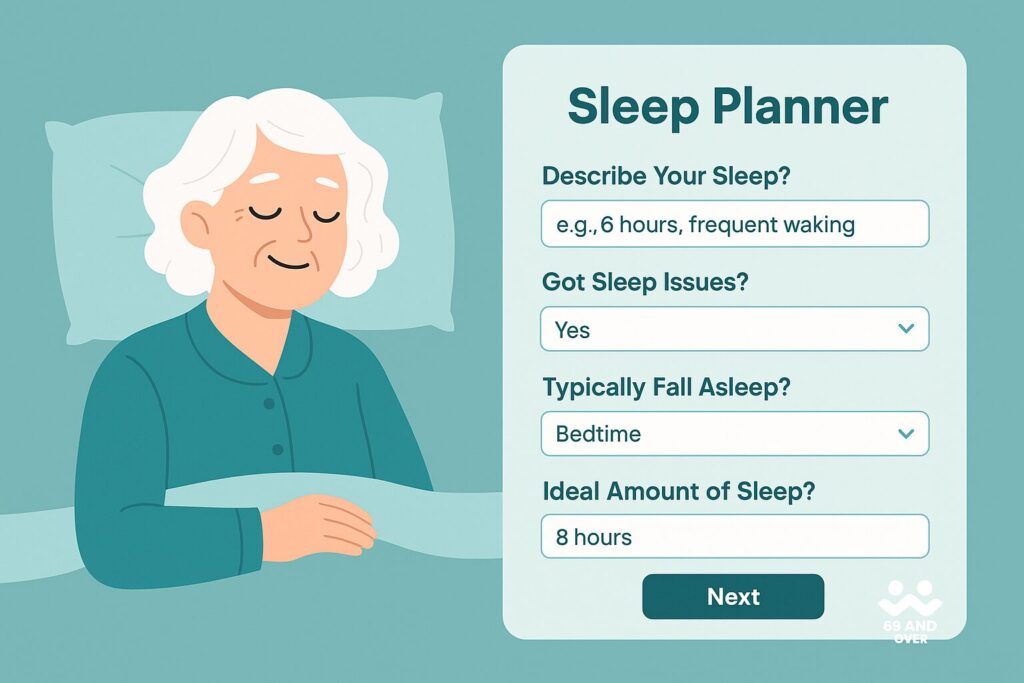Safe Dosage, Benefits, and Risks for Seniors
As we get older, sleep often becomes lighter, shorter, and less refreshing. Many seniors wake up several times a night, struggle to fall back asleep, or feel unrested in the morning. While some turn to prescription sleep aids, others look for natural options. One supplement that has gained a lot of attention is magnesium.
Magnesium is an essential mineral involved in hundreds of bodily functions, from nerve signaling to muscle relaxation. But does taking magnesium actually improve sleep for older adults? And if so, how much is safe? Let’s explore the science, the potential benefits, and what seniors should know before reaching for a supplement.
What is Magnesium’s Role in the Body?
Magnesium is one of the body’s most important minerals. It is needed for more than 300 biochemical reactions, including:
- Supporting nerve and muscle function
- Regulating blood pressure and blood sugar
- Helping bones stay strong
- Playing a role in energy production
When it comes to sleep, magnesium helps regulate neurotransmitters and hormones that calm the nervous system. One key role is its effect on GABA receptors, which promote relaxation and reduce overactive brain activity. This is why magnesium is often thought of as the “relaxation mineral.”
The Connection Between Magnesium and Sleep
Magnesium appears to influence sleep in two ways:
- Relaxation and Calming. By activating GABA receptors, magnesium encourages the brain and body to wind down. Seniors who feel “wired but tired” at night may benefit from this effect.
- Regulation of Melatonin. Magnesium helps regulate the production of melatonin, the hormone that signals sleep time. Without enough magnesium, the body may not make melatonin as efficiently.
Together, these effects suggest magnesium may help seniors fall asleep more easily and stay asleep longer.
Research Evidence: Seniors and Magnesium
Several studies have looked at magnesium and sleep in older adults:
- A randomized trial in older adults with insomnia found that magnesium supplementation improved sleep time, sleep efficiency, and reduced early morning awakenings.
- Another study showed that seniors who took magnesium had higher melatonin and renin levels, hormones linked to sleep regulation.
- Magnesium deficiency is more common in older adults, often due to reduced dietary intake, medications (like diuretics), or reduced absorption.
While more research is needed, current evidence suggests magnesium supplementation can be particularly helpful in seniors who are deficient.
Safe Dosage for Adults Over 60
The recommended dietary allowance (RDA) for magnesium is:
- Men 51+: 420 mg/day
- Women 51+: 320 mg/day
This includes food and supplements combined. For sleep support, many studies used 100–350 mg of supplemental magnesium, usually taken about an hour before bed.
Best practices for seniors:
- Start low (100–200 mg) and increase if needed.
- Avoid high doses above 400–500 mg daily, as this may cause diarrhea or low blood pressure.
- Choose the right form. Magnesium glycinate and citrate are often better absorbed and gentler on the stomach than oxide.
- Take it consistently. Benefits may build over several days or weeks.
Potential Side Effects for Seniors
While magnesium is generally safe, older adults may be more sensitive to side effects, especially if they take multiple medications. Possible issues include:
- Loose stools or diarrhea (most common)
- Nausea or stomach upset
- Low blood pressure or dizziness at high doses
- Irregular heartbeat if severely overdosed
For most healthy seniors, side effects are mild and manageable when sticking to safe dosage ranges.
Who Should Avoid Magnesium Supplements?
Not all seniors should take magnesium without medical guidance. Caution is needed for:
- Kidney disease. Impaired kidneys can’t clear magnesium efficiently, leading to dangerous buildup.
- Those on diuretics or heart medications. Magnesium may interact with certain blood pressure and cardiac drugs.
- People already taking laxatives. Extra magnesium may worsen diarrhea and dehydration.
If any of these apply, it’s important to check with a doctor before supplementing.
Food Sources of Magnesium
Supplements are convenient, but many seniors can also improve intake by eating magnesium-rich foods. Some of the best sources include:
- Spinach and leafy greens
- Almonds, cashews, and pumpkin seeds
- Black beans and lentils
- Oats and whole grains
- Dark chocolate (in moderation)
Adding these foods regularly may provide a steady foundation of magnesium without the need for pills.
Does Magnesium Really Work for Sleep?
The short answer: yes, for some seniors, magnesium helps improve sleep—especially if they’re deficient.
It’s not a sedative, so don’t expect the knockout punch of a prescription pill. Instead, magnesium may gently improve sleep quality over time by calming the nervous system, helping muscles relax, and supporting natural melatonin rhythms.
Seniors who are restless, wake up frequently, or feel muscle cramps at night may notice the biggest improvements.
Conclusion
For adults over 60, magnesium is a safe, non-habit-forming option that may support better sleep, especially when deficiency is present. The best approach is to start with food sources, add a low-dose supplement if needed, and check with a healthcare provider before going higher.
Magnesium won’t solve every sleep problem, but for many older adults, it can make nights calmer and mornings more refreshed.
Magnesium and Sleep: Frequently Asked Questions
Q: Does magnesium really help seniors sleep better?
A: Research shows magnesium may improve sleep quality in older adults, especially those who are deficient. It helps calm the nervous system, support melatonin production, and relax muscles.
Q: What is the best dosage of magnesium for adults over 60?
A: The recommended dietary allowance is 320 mg per day for women and 420 mg per day for men. For sleep support, most seniors do well with 100–350 mg from supplements taken about an hour before bed.
Q: What type of magnesium is best for sleep?
A: Magnesium glycinate and citrate are usually better absorbed and gentler on the stomach than magnesium oxide. They are often recommended for older adults.
Q: What are the side effects of magnesium in seniors?
A: Too much magnesium can cause diarrhea, nausea, or low blood pressure. Seniors with kidney problems should be especially cautious because they may not clear magnesium efficiently.
Q: Can I get magnesium from food instead of supplements?
A: Yes. Foods like spinach, pumpkin seeds, almonds, black beans, and whole grains are all good natural sources of magnesium and can support overall health without pills.




